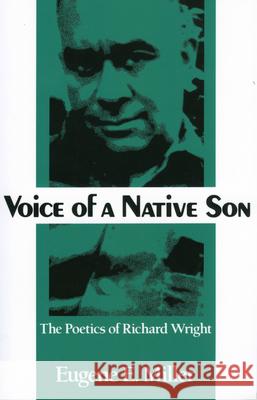Voice of a Native Son: The Poetics of Richard Wright » książka
Voice of a Native Son: The Poetics of Richard Wright
ISBN-13: 9781604735253 / Angielski / Miękka / 1990 / 292 str.
Deep in his cultural roots Richard Wright sensed a natural creative force. He saw it as a manifestation in his grandmother's religiosity and in the lyrics of the blues and in black folk expressions. His fascination with this -something- inspired his -blueprint for Negro writing- and led him to see connections between Gertrude Stein's use of language, the collage tecnique of surrealism, Kenneth Burke's theories of symbol/orientation formation, Wilhelm Reich's orgone theory, Japanese haiku, and the practical application of indigenous Afro-American folk expression. To the end of his life Wright attempted to discover and to express the force between black artistic creation. This fascination with this distinctive Afro-American perception is the key to understanding Wright's aesthetic principle. It abided with him and is at the source of his artistic world. Voice of a Native Son explores this poetic principle in both published and unpublished works of Wright. Too often he has been seen in the light of his political and sociological importance. This book, however, examines Wright's underlying artistic consciousness that shaped his works and his career, a consciousness that transcends the naturalism that he learned in reading Dreiser and Farrell. Blazing a new trail, this fresh assessment shows Wright's deep interest in nature and in the form of literary creation. It frees his works from the requisite discussions of proletarianism and polemics which traditional studies of Wright's fiction too often have been set in stone.











